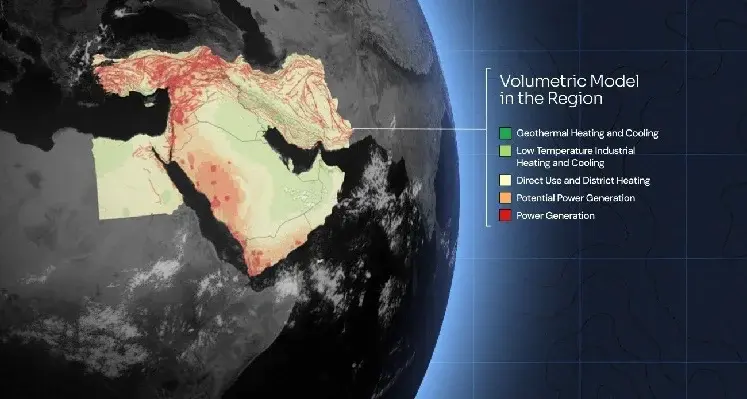Project InnerSpace, an independent non-profit organisation dedicated to the global development of geothermal energy, has released GeoMap Middle East, a geothermal exploration platform that helps government, businesses and communities identify and advance geothermal opportunities
The platform integrates millions of subsurface and surface data points into a freely accessible, interactive map, and reveals vast geothermal potential in the Gulf region for cooling, long-duration energy storage, and round-the-clock power applications.
In the Middle East, geothermal can deliver the constant, low emissions energy needed to meet rising demand for cooling, with cooling driving up to 70% of peak electricity demand in the Gulf states.
Geothermal district cooling could slash that peak, easing grid strain in cities like Riyadh, Dubai, and Doha. GeoMap shows around 14,000 GW of cooling potential, with Iran, Egypt, Iraq, and Turkey providing two-thirds of capacity; Saudi Arabia, UAE, and Qatar also hold major opportunities.
Geothermal can also complement record-breaking solar investments by providing long-duration energy storage. Geological formations across Iraq, Syria, the Gulf states, northern Saudi Arabia, and Yemen could serve as "earth batteries," storing excess solar and wind energy as heat in deep sedimentary basins and releasing it on demand to balance the growth of intermittent renewables.
The region is home to high-potential geothermal zones. The Red Sea Rift (western Saudi Arabia/northern Yemen) holds potential for gigawatt-scale power production and desalination; eastern Turkey and northern Iran also have strong power potential. Both areas hold opportunities for geothermal powered data centres.
Importantly, the Middle East is uniquely positioned to scale geothermal quickly, given the region's extensive drilling expertise and robust oil and gas industry presence, providing the know-how, workforce, and assets needed for rapid deployment."One of the most exciting things about the geothermal development potential in the Gulf region is the fact that the resource sits below some of the world's most capable and resourced oil and gas companies - the very entities with the required expertise to develop these resources, and the ability to deliver the speed and scale necessary to make geothermal relevant for the world," said Jamie Beard, executive director of Project InnerSpace.
GeoMap Middle East builds on previous releases of GeoMap in Africa, North America, India, Asia, and Oceania, advancing a global effort to map geothermal opportunities and make next-generation geothermal data freely accessible.







